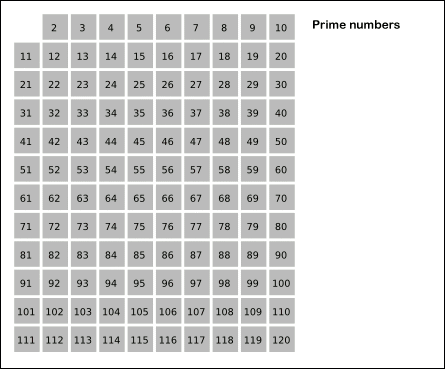Count the number of prime numbers less than a non-negative number, n.
Example 1:
Input: n = 10
Output: 4
Explanation: There are 4 prime numbers less than 10, they are 2, 3, 5, 7.
Input: n = 0
Output: 0
Example 2:
Example 3:
Input: n = 1
Output: 0
Constraints:
0 <= n <= 5 * 106
Approach:
- Create a 1D boolean array prime [] of size N.
- Initially we presume that all numbers are prime numbers. So we will the array with true.
- Starting from 2, we check if prime [i] is true, if so, we update every multiple of i to false.
- In the end, we check prime [] from index = 2 and print the count of cells containing the value true.
- Note: 1 is not a prime number which is why we start iterating from 2.
TIME COMPLEXITY ANALYSIS:
Overall Time Complexity = O (N * log (log (N))
Below animation shows how the sieve will work for N = 121.

C++ Code:
class Solution {
public:
int countPrimes(int n) {
if (n == 0)
return 0;
bool prime [n];
memset (prime, true, sizeof (prime));
for (int i = 2; i*i < n; i++) {
if (prime [i] == true) {
// Update all multiples of i to false if i is prime
for (int j = i * i; j < n; j += i)
prime [j] = false;
}
}
int count = 0;
for (int i = 2; i < n; i++) {
if (prime [i])
count++;
}
return count;
}
};
No comments:
Post a Comment
Please do not enter any spam link in the comment box